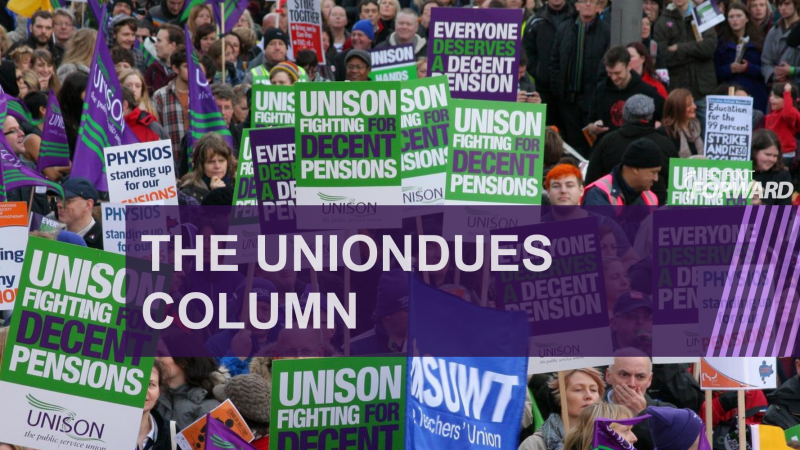It's time to recognise the legacy of the Matchgirls strike.

The Matchgirls’ strike of 1888 holds a special place in British history. It is often cited as the one of the first recorded industrial disputes of women here.
This week saw the launch of a new collection of poems and prose in support of the Matchgirls 1888 memorial campaign.
In a special episode the UnionDues podcast, we ask why the Matchgirls strike of 1888 is still relevant today, and feature readings from the collection.
The story of how around 1,400 girls and young women working with deadly white phosphorus at the Bryant and May match factory in London’s East End said “enough” attracted immediate support from sympathetic high profile activists like Annie Besant, the Times newspaper, and the nascent Salvation Army – the latter building a rival match factory with safer products and better pay.
The strike spawned a political, social and moral legacy that is still felt today in the spheres of union organisation, safer working practices, and women’s’ emancipation.
But if you seek a monument to the Matchgirls, you will search in vain. Yes, there is the odd roundel set into the pavements of Spitalfields, a celebratory poem on a board in the 2012 Olympic Village, a poster in the TfL museum’s collection.
That is what the Matchgirls’ memorial charity seeks to put right – a permanent and suitable recognition of the dispute and those who took part in it.
The story is indeed almost larger-than-life: Sam Johnson, chair of the charity, describes the “moment of revelation” when she discovered her own great-grandmother, Sarah Chapman, was one of the strike-leaders. Finding out more about her contribution – for example, the strikers’ delegate to the TUC – led to the campaign for a lasting memorial.
The legacy of the strike in terms of industrial history, drama and music is comprehensive and varied. Graham Johnson probably knows more about this than anyone, and he guides us through the development of the match industry, and the scandalous use of white phosphorous – even though its connection with the disfiguring and oft-deadly “Phossy Jaw” was increasingly well known.
There is a distinctive resonance of the Matchgirls’ strike to today’s politics – I’d argue Sarah Chapman and her fellow strikers would see similarities with the #MeToo and #Black Lives Matter movements. Director, writer and activist Polly Creed and Neil Jameson – described as the “first and most experienced modern-day community organiser” – told me about how the events of 1888 relate to today.
Polly points out that past dramatisations of the Matchgirls’ story have largely fallen foul of dramatic tropes and sexist stereotypes (Joyce Adcock’s ‘Strike A Light’ being an exception). She is working on a version that is more faithful to the empowerment and radicalisation that are fundamental components of what happened. “You can always call out injustice,“ says Polly, and Neil points out that “you could do this [a Matchgirls type protest] now.”
Neil also makes the argument that the strike was a prime example of how change comes from the margins of society at any given time, rather than more established centres of power, such as the Crown or Parliament.
The link between 1888 and today remains strong, as reflected in the readings from Emma Purshouse, Eleanor Walsh and Debbie Rolls. There are golden threads linking Matchgirl Sarah Chapman and her colleagues to the struggles of today: for collective voice and transformative politics.
The charity is right to say a permanent memorial is long overdue, to sit alongside the educational materials already available and the new collection of poems and prose.
The Matchgirls website is here, and the poetry collection, Feathers and Pennies, costs £10 + p&p and is available here.
Hear the Working River collection of songs from the Thames, including the Pete Dunhill Choir’s ‘Matchgirls’ Song,’ and the UnionDues special episode on that here.
Emma Purshouse is Wolverhampton’s Poet Laureate, and her website is here. You can follow Eleanor Walsh on twitter, and Debbie Rolls biog is here
As ever, you can contact the show by email to uniondues@makes-you-think.com or tweet us @DuesUnion. Feel free to let us know what you think and suggest other themes for one of our special episodes.
To reach hundreds of thousands of new readers we need to grow our donor base substantially.
That's why in 2024, we are seeking to generate 150 additional regular donors to support Left Foot Forward's work.
We still need another 117 people to donate to hit the target. You can help. Donate today.



